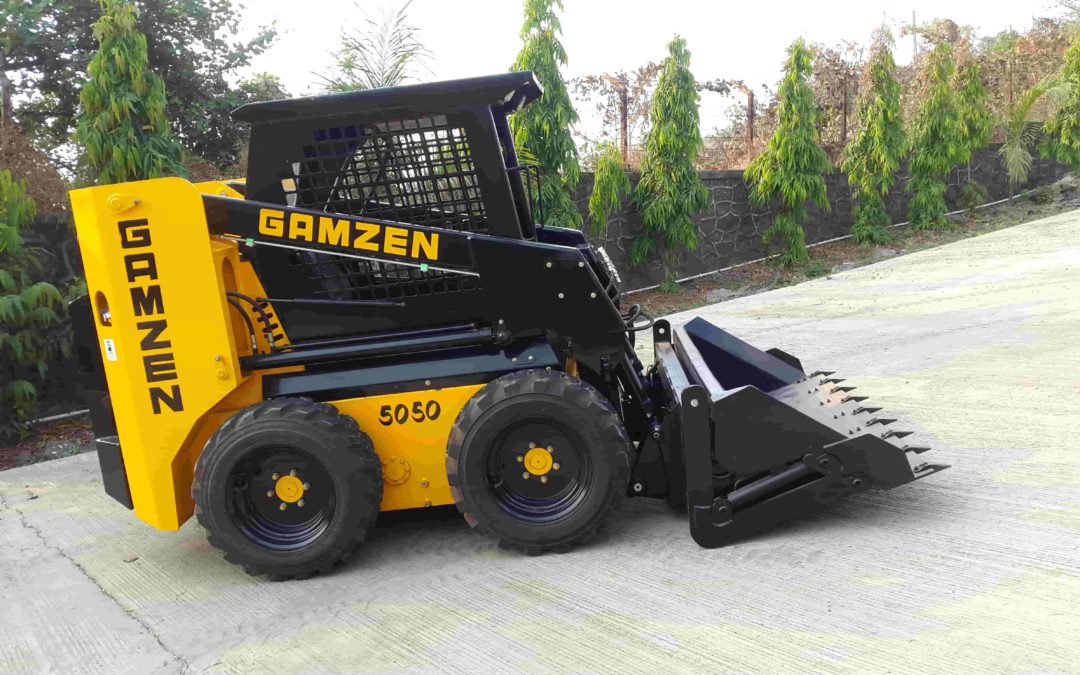The Ultimate Guide to Choosing the Perfect Skid Steer Loader for Your Project
Welcome to “The Ultimate Guide to Choosing the Perfect Skid Steer Loader for Your Project”! Skid steer loaders are versatile machines that can handle a variety of jobs. Choosing the right loader can make or break your project. With the different types available and various factors to consider when selecting one, it can be overwhelming.
Fret not! In this guide, we’ll cover everything you need to know to make an informed decision when selecting a skid steer loader. From the types of skid steer loaders available to renting vs buying, and maintenance and support, we’ve got you covered. So, let’s dive in!
Types of Skid Steer Loaders
Skid steer loaders come in different configurations, each with its own specialization. The three primary types of skid steer loaders are wheeled, tracked, and mini.
Wheeled skid steer loaders are ideal for projects requiring speed and maneuverability on flat surfaces. They’re versatile and easy to transport from one job site to another. However, they aren’t suitable for working in areas with high traction requirements, such as soft or muddy terrains.
Tracked skid steers, on the other hand, have excellent traction and work well in demanding conditions such as rocky surfaces or steep gradients. They also have a better lifting capacity than wheeled skid steer loaders and are less likely to sink into soft terrain.
Mini skid steer loaders, also known as compact skid steers, are the smallest of the three types and excel in tight spaces. They’re ideal for work indoors, landscaping, and small excavations. However, they’re not suitable for larger projects since they have a lower lifting capacity.
Choosing the right skid steer loader for your project is crucial in achieving the desired results. With the information on the types of skid steer loaders available, you can now make an informed decision on the type of skid steer loader that best suits your project.
Selecting the right Skid Steer Loader
Selecting the right Skid Steer Loader can seem like a daunting task. However, it can be simplified by ensuring that the key factors are considered before making a decision.
Attachment Compatibility is an important consideration. It is essential to ensure that attachments are compatible with the loader’s hydraulic system. This will prevent damage to both the attachment and the machine.
Engine Power is another crucial factor to be considered. The loader must have sufficient power to handle the tasks required. It is essential to check the horsepower, torque, and cooling capacity to ensure that it can handle the load.
Hydraulic Flow Rate is another critical consideration. The flow rate should match the hydraulic capabilities of the attachments being used. Higher flow rates enable faster operation of attachments, making the task quick and efficient.
Loading Capacity should also be accounted for as it determines the quantity and weight of materials that can be lifted. Overloading the equipment can cause accidents and damage to the machine.
Overall, the selection of Skid Steer Loader should be based on the requirements of the specific project. It is always advisable to consult with a professional to ensure that you select the right loader for your project.
Remember, selecting the right Skid Steer Loader can make all the difference in the success of your project.
Renting vs Buying
Choosing between renting or buying a skid steer loader can be a tough decision. It all depends on your project requirements and budget.
For short-term projects, renting is a viable option. It saves you the upfront costs of buying and maintaining the equipment. Plus, you don’t have to worry about storage or reselling once the project is complete.
On the other hand, for long-term projects, buying a skid steer loader would be a wise investment. You can customize the machine to your specific project needs and avoid the rental costs adding up. It also gives you the freedom to use it whenever you need it, without the hassle of scheduling a rental.
Still, the cost comparison between renting and buying is essential. Renting might seem cheaper at first glance, but when you consider all the costs, including transportation, insurance, and additional attachments, buying might become more cost-effective in the long run.
Whether you rent or buy also depends on the availability of maintenance and support. If you’re renting, make sure the rental company provides regular servicing of the machine and, more importantly, reliable customer support. If you’re purchasing, take advantage of after-sales support from the manufacturer.
So, which option should you go for? The answer is not straightforward. Evaluate your project requirements and budget, consider all the costs, and make an informed decision. It’s like choosing between buying or renting a house but on a smaller scale. Don’t rush into it and end up regretting it later.
Maintenance and Support
Maintenance and support are vital for the longevity and smooth functioning of your skid steer loader. Regular inspection and servicing of your machine will ensure that it remains in top condition and performs efficiently without any unexpected breakdowns. It is crucial to follow the manufacturer’s recommended maintenance schedule and carry out timely repairs if required.
In case of any technical issues or concerns, manufacturer support can be of great help. They can offer the necessary guidance and expert advice to get your machine back on track. It is advisable to opt for a skid steer loader from a reputed brand that provides excellent customer support and after-sales service.
By prioritizing maintenance and support, you can avoid costly repairs and downtime, resulting in increased productivity and profitability. Remember, a well-maintained and supported skid steer loader can be your ultimate workhorse.
Conclusion
So there you have it, folks! Choosing the perfect skid steer loader for your project can be a daunting task, but with these factors in mind, you’re well on your way to finding the right fit. Remember to consider the type of skid steer loader, attachment compatibility, engine power, hydraulic flow rate, and loading capacity. Additionally, take the time to consider whether renting or buying is the best option for your needs and always prioritize maintenance and support. Happy loading!

